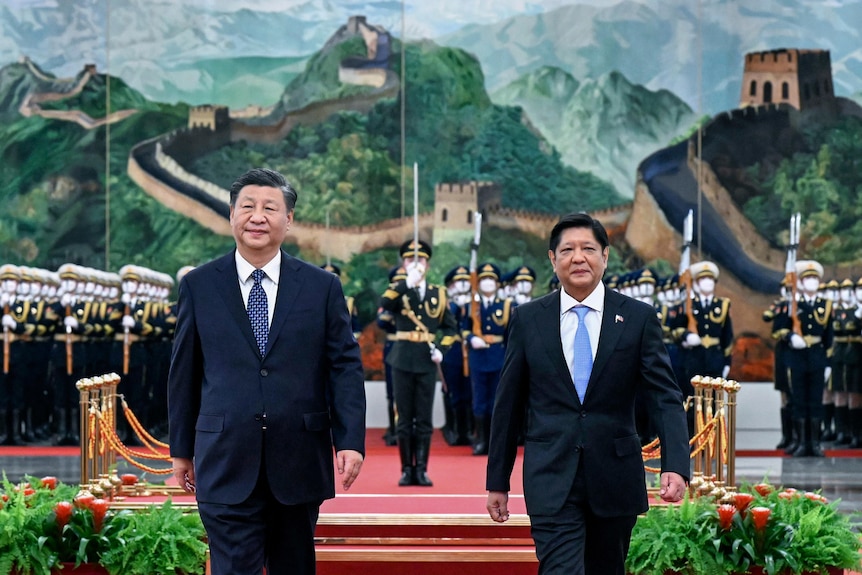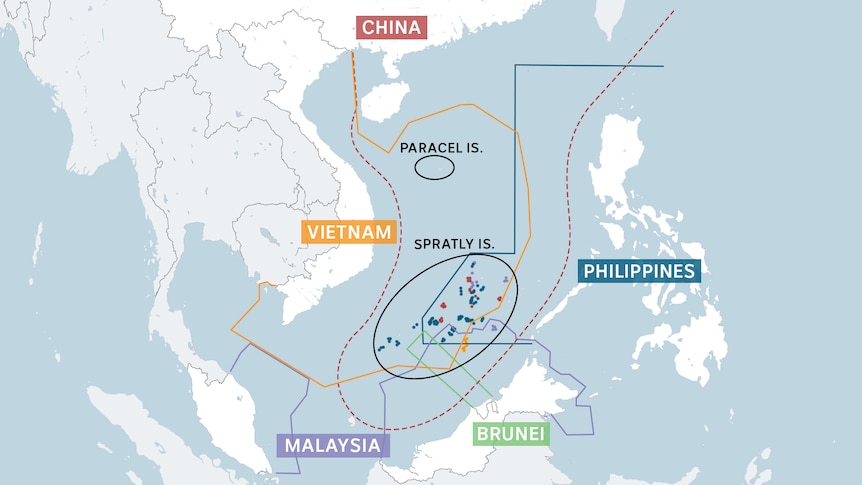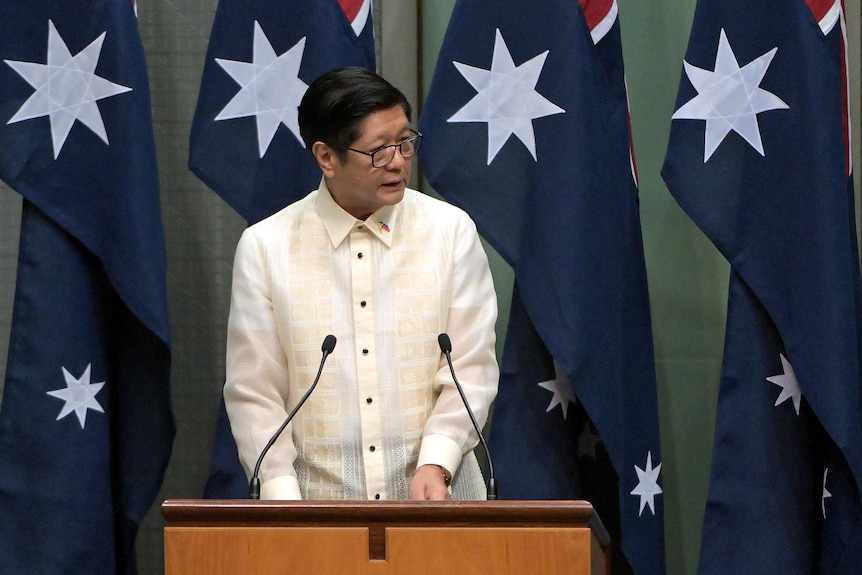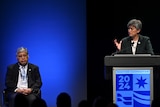In the context of Philippines-China Relations and the South China Sea, Ferdinand Marcos Junior, the Philippine President, expressed concerns about escalating tensions with China. He emphasized the need for Chinese President Xi Jinping to be more proactive in addressing potential conflicts. During an interview at the ASEAN Summit, Mr. Marcos highlighted the growing risk of a minor incident in the South China Sea triggering a larger confrontation.
Mr. Marcos underscored the heightened risk of direct conflict in the South China Sea, stating that the current situation is more precarious than in the past. He articulated the Philippines’ apprehensions, citing the possibility of conflict arising not from a deliberate decision but from a misunderstanding or a simple mistake by military personnel.
The Philippine President stressed the importance of de-escalating tensions to prevent any inadvertent conflict. He referenced historical precedents, such as the direct communication line established between US President John F. Kennedy and Russian leader Nikita Khrushchev during the Cold War to manage nuclear tensions effectively.
In a bid to mitigate potential conflicts, Mr. Marcos proposed the establishment of a similar direct communication channel with President Xi Jinping. He revealed that he had suggested this initiative during a visit to Beijing in January the previous year. This proactive approach aims to enhance communication and reduce the risk of misunderstandings between the Philippines and China in the South China Sea.

Ferdinand Marcos Jr expressed his desire for a direct communication channel to Xi Jinping in the context of Philippines-China Relations and the South China Sea. Mr. Marcos proposed the establishment of a hotline to ensure efficient communication between presidents. Despite the proposal made over a year ago, the anticipated phone line connecting the two leaders has not yet been established.
Australia’s Role in Maintaining Stability in the South China Sea
Australian Foreign Minister Penny Wong recently emphasized the importance of Australia’s involvement in preserving peace and stability in the South China Sea. She highlighted the escalating tensions in the region and stressed the need for a proactive approach to prevent potential conflicts.
Recent incidents in the South China Sea involving Chinese vessels have raised concerns, with Australia and the Philippines being directly impacted. In late 2023, an Australian ship was involved in a sonar incident, adding to the growing list of maritime disputes in the area.
Notably, military tensions between Manila and Beijing intensified when Chinese coast guard and militia vessels clashed with Philippine counterparts, further complicating the situation in the disputed waters of the South China Sea.
The South China Sea holds significant economic and strategic importance for Australia, as well as other regional players like Indonesia, Malaysia, the Philippines, Vietnam, Taiwan, and Brunei. However, China’s extensive territorial claims in the region have sparked tensions and raised concerns among neighboring countries.
China’s assertion of its territorial rights in the South China Sea, marked by the controversial “nine-dash line,” has been a point of contention and a source of instability in the region.

China’s Assertive Claims in the South China Sea
China’s assertions in the South China Sea directly challenge the claims of its neighboring countries. The dispute, which originated in 1947, has been fueled by China’s strategic legal arguments and its continuous presence in the region.
When questioned about the importance of supporting The Philippines against Chinese pressure, Mr. Marcos emphasized the benefits such actions would bring to Australia. He highlighted the significance of preventing conflicts from escalating and spreading to other areas.
Mr. Marcos stressed the importance of maintaining peace in the South China Sea to safeguard the interests of Australia and other nations in the region.
Philippines-China Relations: A Look at the Marcos Legacy
After the overthrow of Dictator Marcos Senior in a revolution, Marcos Jr insists that he does not harbor any authoritarian tendencies.
He explicitly stated, “I have no inclinations towards authoritarianism.”
According to him, “I believe in the effectiveness of our current system.”
He further added, “We have successfully adhered to the constitution for the past 36 years.”

### Ferdinand Marcos Junior’s Perspective on Philippines-China Relations and South China Sea
Ferdinand Marcos Junior is currently in Australia for the ASEAN Summit, discussing various regional issues. Despite criticisms, Mr. Marcos defends his father’s authoritarian rule in the Philippines, attributing it to the challenging circumstances the country faced.
According to Mr. Marcos, during his father’s rule, the Philippines was grappling with internal conflicts, including the secessionist movement in the southern part of the country and communist guerillas in rural areas. These challenges necessitated a strong leadership approach to maintain peace and order.
Contrary to common perceptions of authoritarian regimes as non-participatory, Mr. Marcos emphasizes that his father’s rule involved the participation of all stakeholders. He believes that the declaration of martial law was a response to the specific peace and order needs of the time.
Today, the Philippines has made significant progress in addressing these internal conflicts. Mr. Marcos highlights that his father’s approach to governance aimed to involve all parties in decision-making processes, despite the authoritarian nature of the regime.
As Ferdinand Marcos Junior engages in discussions at the ASEAN Summit, the focus remains on regional issues, including the complex dynamics of Philippines-China relations and the ongoing disputes in the South China Sea. Stay tuned for more updates on this critical dialogue.
Contact 7.30 Regarding Philippines-China Relations and the South China Sea
Exploring Philippines-China Relations and the South China Sea
Wong cautions against conflict amidst rising tensions in South China Sea
Philippines-China Relations, South China Sea

To learn more about topics related to Philippines-China Relations and the South China Sea, you can explore the following:
For more insights, please visit our site 60time.com. Don’t forget to follow us on social media at www.instagram.com/60time.com.


